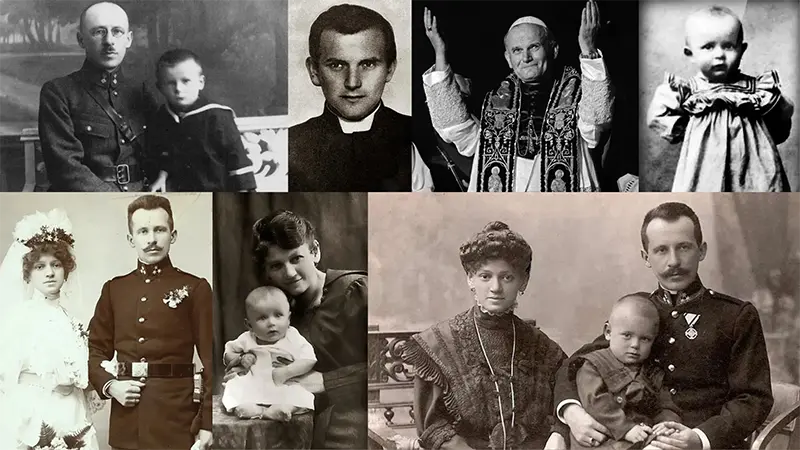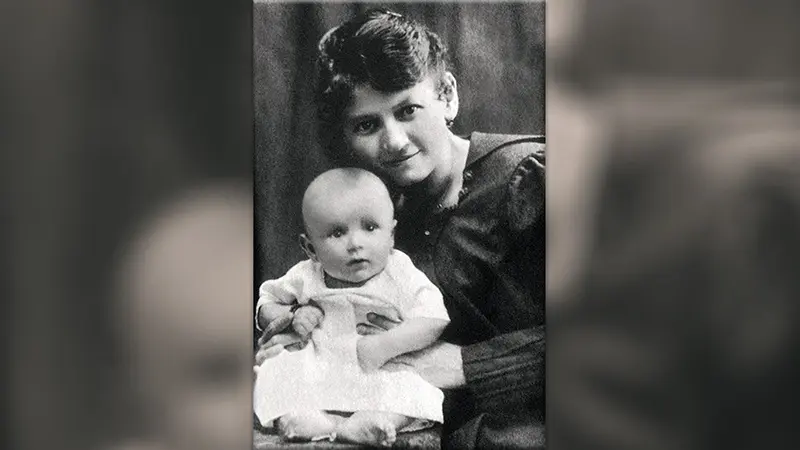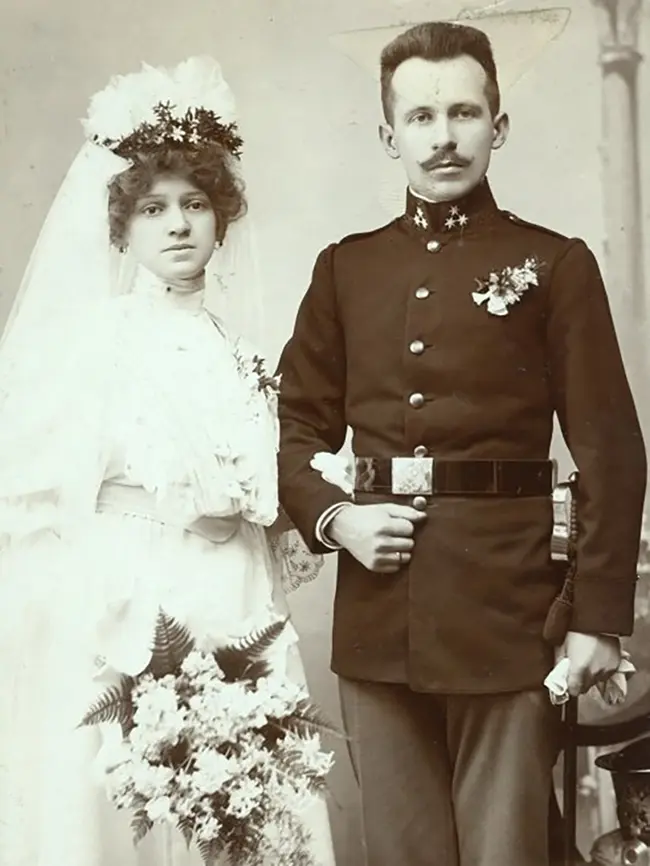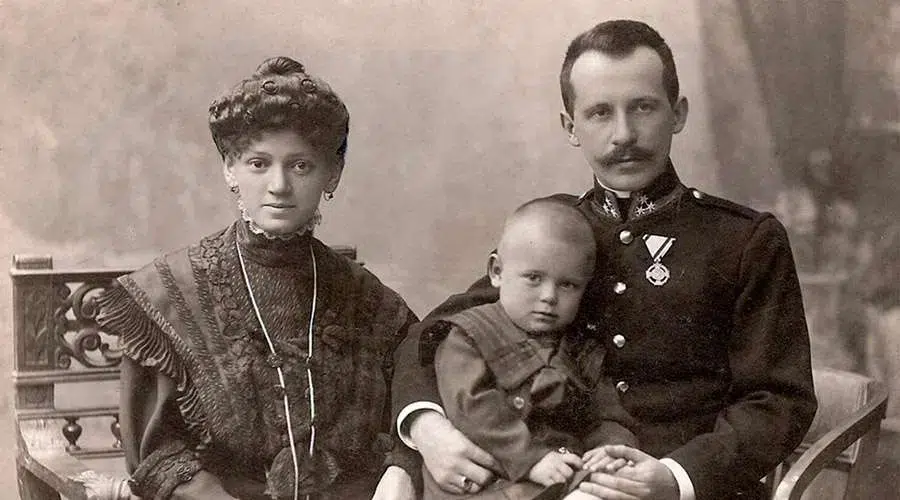
St. John Paul II had a great affection for his parents. Admittedly, this kind of devotion is not common, as some people would find such a photograph nostalgic and sad. Karol Wojtila, on the other hand, kept his parents present until his departure for heaven.

Emilia always presented similarities with her son Karol, with a square and massive face, big eyes and a protruding nose. The daughter of poor artisans, her life was painful, for she soon became a motherless child. She was a woman of strong faith and ardent piety, with a special inclination to Marian devotions. She never enjoyed good health, but the birth of Karol gave her the strength and joy of seeing a healthy and robust child grow up, in contrast to a daughter who six years earlier had died at birth. Emilia had found in a young military man, who would become a captain, the ideal partner for the adventure of starting a family.
He was attracted not only by his good manners and courtesy but also by his deep piety. Stationed in the garrison of the small town of Wadowice, Captain Wojtyla had a modest salary and led a somewhat routine life. He spent many hours away from home, although he arrived home in time to share a peaceful family life, in which prayer and meditation played a prominent role, but also readings in the history and literature of Poland, the homeland that had regained its independence in 1918. As one of the pope's biographers put it, that home was a little Nazareth.
Words of St. John Paul II about his mother: "She was an exceptional woman... I owe my first religious education to her".

Photograph of Karol Wojtyla's parents on his wedding day.
He was always a man of deep faith and discipline, whose life forever marked his son, the future St. John Paul II. He was a retired Austro-Hungarian military officer and later a Polish officer. After the death of his wife Emilia, he took on the rearing of Karol alone, instilling in him Marian devotion, love of prayer and fortitude in the face of adversity.
An austere but affectionate man, he took him to daily Mass and taught him to pray on his knees, even in times of Nazi occupation. His sudden death in 1941 left the young Karol an orphan at the age of 21, but his example of silent piety and dedication to God became the spiritual foundation of his vocation. John Paul II would always remember his father as his "first spiritual guide," the one who showed him that "holiness is not a luxury, but a duty"..
John Paul II's reflection on his father: "My father was a man with a great interior life... With him I learned to pray.".

At the age of nine, young Karol, familiarly known as Lolek, will witness the death of his mother. He is forty-five years old and has been the victim of nephritis. His father, who was fifty in 1929, was forced to retire from the army to take care of his young son.
There is also an older son of twenty-three years, Edmund, who some time before had gone to nearby Krakow to study medicine. This son, stationed in various hospitals, will make frequent visits to the family home to find his father and brother. However, in 1932, when he was only twenty-six years old, Edmund died of scarlet fever. He had caught it from a sick woman whom he had endeavored to cure. Such was his generous and energetic character and his passionate dedication to his vocation as a doctor.
Both Karol, father and son, stay in the Wadowice home. The father prepares the meals, takes care of the cleaning and supervises the child's homework. In addition, in that house many rosaries are prayed, a way to get closer to the heavenly Mother. in the absence of the earthly mother. The son first attends a municipal school, and then the city high school. He is an outstanding student in many subjects, especially in religion, and will also be a hard-working soccer goalkeeper, who wins the sympathy of his classmates, among whom there are many Jews.
Before World War II, about a third of the city's population was Jewish. The young Karol will be impressed by the extreme care Jews put into their religious rites, which sometimes contrasts with empty Christian churches and routine piety. Many years later, when visiting the synagogue in RomeAs pope, he will affirm that "the Jews are our elder brothers in the faith".